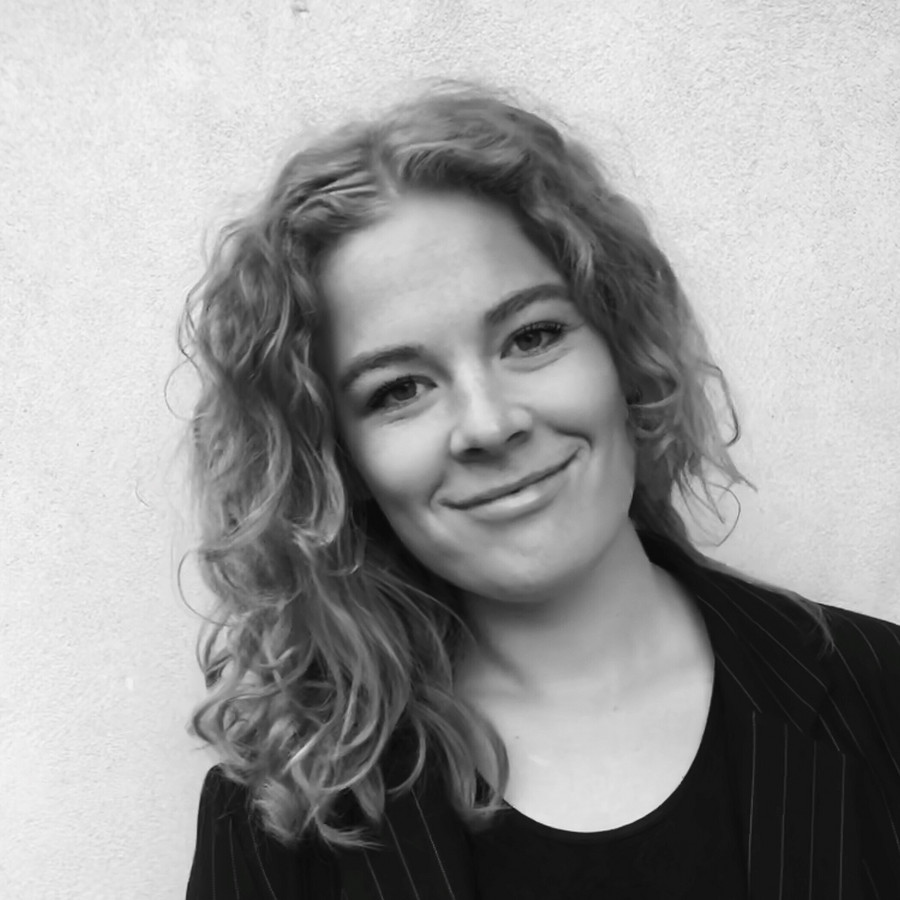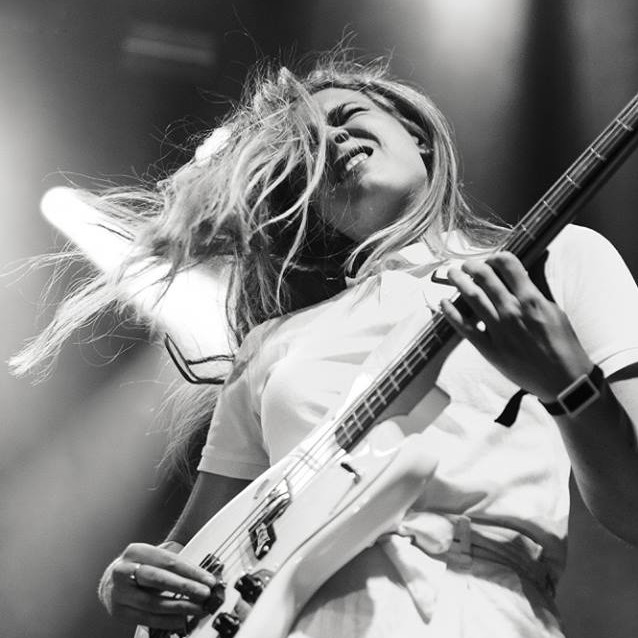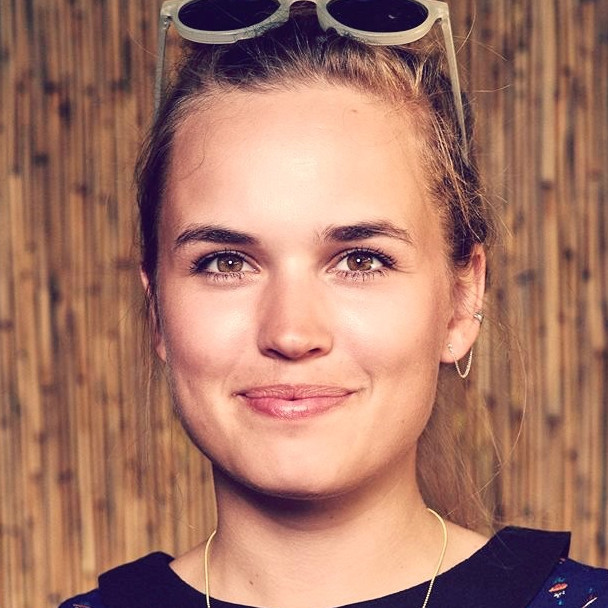The Music Management programme qualifies graduates for a variety of jobs within the music industry, for example with music companies, booking agencies, management companies, festivals, venues, media and internet companies, as well as similar jobs in related areas of the experience and culture industries. The employment opportunities depend on both market fluctuations in the business and on the priorities of cultural policy, and may therefore vary.
Victoria Løie Jespersen, graduated in 2018
What’s your job now?
I work as an A&R at Warner Music Denmark.
Why did you choose to study Music Management?
I had been working in the music industry for some years and could not see myself doing anything else. I really had a hard time seeing myself continue studying and I could just not find a school or an education that felt right to me. However, when my attention was drawn to Music Management, the thought of studying started to make sense to me.
What’s a typical working day for you?
I spend most of my time in dialogue with both artists, producers/songwriters, managers, publishers, and bookers. I must disperse my time and energy as well as I can between the artists I already work with and the artists I do not work with yet. Of course, I also listen to a lot of music. I think the dialogue about music is important and I always try to give constructive feedback – even if it is artists, I do not work with every day. Although it is a very flexible and dynamic job, I have office hours from 9-17 as most others, but when working with creative individuals, one cannot count on the fixed hours of work. The phone is ringing on Sunday evening, and sometimes you must be at Rust at 2 a.m. Friday night with a bottle of water.
What was the most important thing you got from the education?
The people I have met, without a doubt. They have made my world much bigger and that is perhaps one of the most valuable things one can experience.
Where are your fellow students today?
We are a mix of bookers, managers, producers, and label entrepreneurs. Everyone is still in the music industry, so we can hardly avoid each other.

Signe Tobiassen, graduated in 2017
What’s your job now?
I work freelance and travel a lot both in Denmark and abroad, partly as a consultant/teacher and partly with my band Nelson Can. All the while I am finishing my Master’s degree in Management of Creative Business Processes at Copenhagen Business School – it is a very nice programme to build upon Music Management for those who want a Master’s degree as well.
Why did you choose to study Music Management?
I had dreamed of it ever since I went to high school. I knew that I wanted to work in music or other creative businesses and that my strengths were in the administrative part of it. It just took me many years to gather the courage to apply, and today I think it was great that I had some years of experience before I was admitted because it made it easier for me to put things in perspective and get the full benefit of the education.
What was the most important thing you got from the programme?
My classmates and the unity we had and still have has been completely invaluable to me. You obviously learn a lot of incredibly important things and you get a fantastic big network, but your classmates is in my view the greatest resource you get. If you cannot work as a part of a group community and be a team player, you should choose another education.
Do you use the professional competences you got in your current work?
All the time. I use all the knowledge I acquired almost daily. The level was sky-high. So high that it has made the Master's programme feel very manageable.
Did you know how you would use your degree?
No, not exactly. And I don't think there's anything wrong with still being investigating when you apply. Forget the career plans for a moment and get your head filled with as much knowledge as possible. The big decisions can come afterwards.

Theodor Clausen, graduated in 2017
What’s your job now?
I am a promoter and concert organizer at Live Nation, where my daily work consists of booking and setting up concerts with international artists in Denmark.
What’s a typical working day for you?
Hectic ... but fun. We set up +400 concerts a year at a wide range of venues and festivals, so there is a lot of communication with international booking agents, venues, festivals and many other stakeholders. I have regular office hours during the day and 1-2 concerts a week in the evening hours. In addition, there are various trips abroad and festivals, where networks and new artists are cultivated.
What was the most important thing you got from the programme?
The network and friendships of the other students, those from the other programmes as well. Furthermore, I can thank my internship at Roskilde Festival for what I do today.
Do you use the professional competences you got in your current work?
Definitely. Especially law, project management and finance. Furthermore, the music industry studies is a good way to gain a greater understanding of how the different players in the Danish music industry are working.
Where are your fellow students today?
Everything from PR, management, venues, musicians and anything else.
Laura Nyhus Kaae, graduated in 2016
What’s your job now?
I am Label Manager for New Amsterdam Records in New York, which publishes new composed music that moves beyond and between existing genres. We are also involved in live music activities, educational initiatives, and podcasts.
What’s a typical working day for you?
My everyday life is at one time very varied and routine; many of the same tasks must be solved for each release, but at the same time, each artist and each project is so different that it never gets boring. I spend a lot of time on emails, taking phone calls and meetings, with both artists, colleagues, and business partners, and some time on practical tasks. In addition, I spend a lot of time listening to submissions, and I go to many concerts, both with our own artists and with artists or projects that we are interested in signing or collaborating with in other ways. It is a relatively small organization, and I often have many hats on, at one time.
What was the most important thing you got from the programme?
I got many specific tools in subjects I did not know much about before, such as law, economics, and strategy. In addition, I learned to put words and structure on some work processes that I already worked with, such as project management and marketing. Especially, I gained a greater knowledge of the industry and the mechanisms behind the music, and I expanded and strengthened my network tremendously through subjects as music industry studies, study trips, internships, and various projects.
Did you know how you would use your degree?
I did not know exactly what I wanted after graduating when I started, but I always knew that I would work with the music and art that is out of the mainstream. A couple of my fellow students had a very clear course for where they were going before we started – I spent the three years at the conservatory to try out different things, which I got incredibly much out of.
How do you see the future of the music industry?
There is so much talent and so many good ideas out there, and I find it exciting to follow and contribute to new concepts and forms of releases, concerts, marketing, partnerships, and so forth, that push the development of the industry. At the same time, I can be concerned about the living conditions for the non-commercial music in an industry that is moving faster and faster, but an important thing I have learned at my current work is that there is an audience for all art – you just have to find it.
